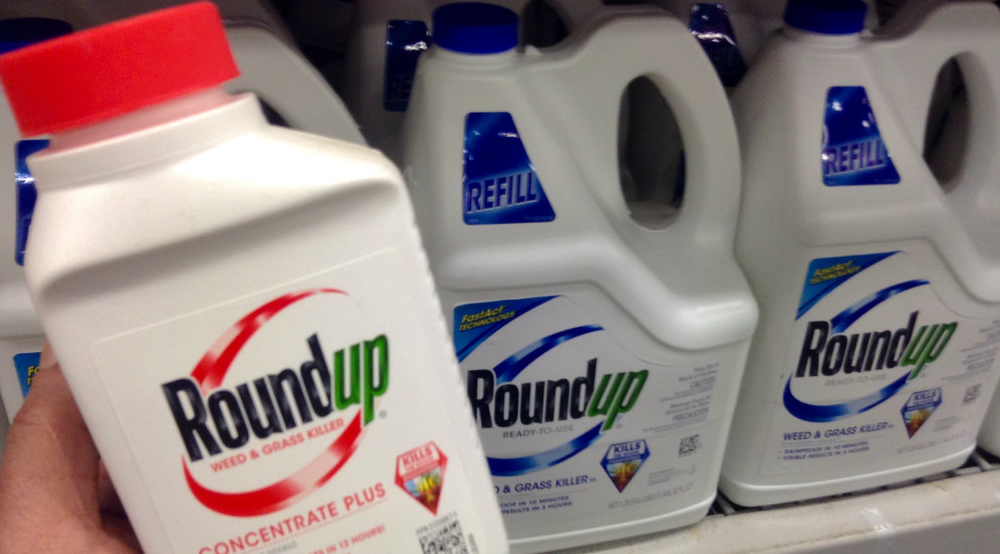
Advertisement
A now-deceased career scientist for the Environmental Protection Agency (EPA) wrote a letter to a colleague that the chemical compound glyphosate, the principle ingredient in Montanto’s “Roundup” herbicide, is far more dangerous than even her own former agency is willing to admit.
The scientist, Dr. Marion Copley, D.M.V., who died from cancer, worked for the EPA for three decades until her illness made it impossible for her to continue. In a letter to EPA colleague and Monsanto “mole” Jess Rowland in 2013, two years before a public debate over the carcinogenic effects of glyphosate began, Copley – a senior toxicologist at the EPA’s Health Effects Division – voiced major concerns about how Rowland and the EPA were dealing with the compound.
“Since I left the Agency with cancer, I have studied the tumor process extensively and I have some mechanism comments which may be very valuable to CARC based on my decades of pathology experience. I’ll pick one chemical to demonstrate my points,” she wrote. (RELATED: Heartbreaking letter from dying EPA scientist begs Monsanto “moles” inside the agency to stop lying about dangers of RoundUp (glyphosate.)
“Glyphosate was originally designed as a chelating agent and I strongly believe that is the identical process involved in its tumor formation, which is highly supported by the literature.”
Copley goes on to note:
— Chelators prevent the process of apoptosis, which is a necessary bodily function to kill off tumor cells;
— Chelators act as endocrine disruptors, which in turn plays a role in the growth of tumors;
— Chelators serve to bind zinc, which is a necessary mineral for proper immune system function;
— Chelators also bind calcium and magnesium, as well as other minerals, thereby making foods “deficient for these essential nutrients;”
— Glyphosate has been found to be a genotoxic substance, which is key in cancer formation;
— Chelators can often cause damage to the kidneys or pancreas, which glyphosate does, serving as another cancer formation mechanism;
— Glyphosate is responsible for destroying good gut bacteria and in the gastrointestinal system at large is 80 percent of the body’s immune system;
— Chelators’ tamping down of the body’s immune system also leads to cancer formation.
She noted further that, in the past, CARC found that glyphosate was a “possible human carcinogen,” and that kidney pathology in separate studies in animals led to the formation of tumors “with other mechanisms.” She also said that “any one of these mechanisms alone listed can cause tumors, but glyphosate causes all of them simultaneously.”
“Jess, you and I have argued many times on CARC. You often argued about topics outside of your knowledge, which is unethical,” she wrote. “Your trivial MS degree from 1971 Nebraska is far outdated, thus CARC science is 10 years behind the literature in mechanisms. For once in your life, listen to me and don’t play your political conniving games with the science to favor the registrants. For once do the right thing and don’t make decisions based on how it affects your bonus.”
Copley, who passed away in January 2014, also identified another EPA colleague, Anna Lowit, accusing both of them of “intimidating staff on CARC” and changing various reports to make the industry look better.
A February filing in U.S. District Court for Northern California seeks to compel testimony from Rowland. The document says that Rowland, now a private citizen, left EPA “mysteriously” a day after an “inadvertent” leak and later retraction of a draft EPA report on the safety of glyphosate that bore Rowland’s signature. (RELATED: EPA Corruption, Monsanto And RoundUp Litigation: Full Text Of Motion To Compel Deposition Of Jess Rowland.)
“…[T]he Plaintiffs have a pressing need for Mr. Rowland’s testimony to confirm his relationship with Monsanto and EPA’s substantial role in protecting the Defendant’s business, efforts subsequently embodied in government reports consistently cited by Monsanto in this Court and elsewhere,” the court filing said. “As stated in the original Motion, the circumstances underlying the relationship between Mr. Rowland and Monsanto are highly suspicious.”
Keep up with this story as it develops at Glyphosate.news.
J.D. Heyes is a senior writer for NaturalNews.com and NewsTarget.com, as well as editor of The National Sentinel.
Sources:
Advertisements







